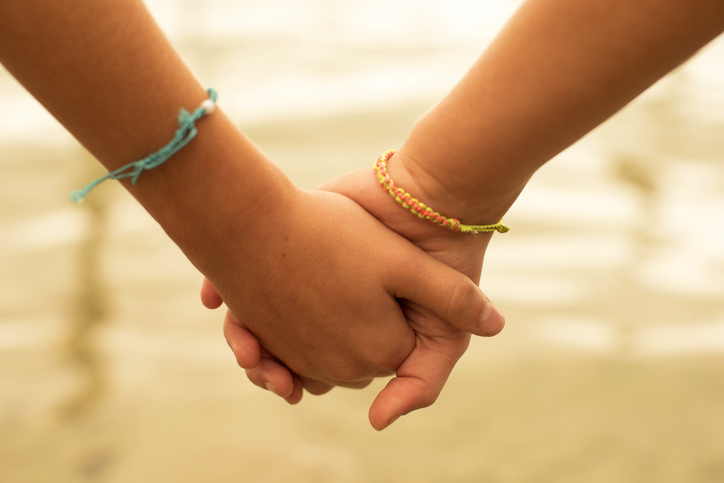My Sister and Me – Both Autistic
One of my older sisters, Shaylin, was born in September 1995, in Knoxville, Tennessee, a lovely, blue-eyed infant, the second daughter of my happy parents. From the time my parents took her home to Jefferson City, to about her first birthday, everything seemed normal. By twelve months old, Shaylin knew how to crawl, how to walk, and how to say a few words.
But three months later, things changed. Shaylin began to stop speaking. Then, she became awfully, lethally sick, to the point that my parents decided to take her to the hospital to save her life. At the time, since Shaylin was deadly ill, my parents assumed her not speaking was due to her ailment.
Unfortunately, my family’s plans became even more complicated, because my mom gave birth to me almost a month later. Shaylin was still terribly sick. After my birth, my father left the hospital to help take care of and check on Shaylin at home.
Sometime after Shaylin was finally getting better, my parents learned that her sickness was due to Budd-Chiari Syndrome, but her speechlessness was due to Autism Spectrum Disorder.
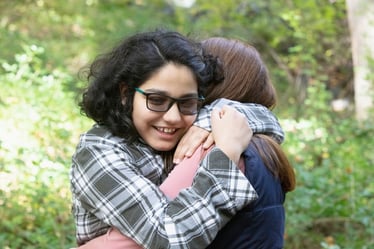
What Is Autism?
Autism is a spectrum. One person’s symptoms are almost always different from another’s, even between siblings. There are those with mild symptoms, such as myself, and those with severe symptoms, such as my sister. The term “Asperger’s” has been used quite a bit to describe many autistic individuals in the former category. Over time, we Aspies can recognize our symptoms and learn how to either live with them or deal with them accordingly, especially after receiving occupational therapy. For example, the lack of eye contact is a common symptom among autistic individuals. But if the child learns to make eye contact over the years, then this symptom can, in some cases, be mitigated. Again, the symptoms and their severity vary among people.
Sadly, there are also those with severe symptoms, those who can’t speak for themselves, or who are bereft of the necessary development. In other words, they, unfortunately, cannot function in our society and live by themselves independently.
Individual Challenges
Shaylin is severely autistic and mentally challenged. She is non-verbal, only able to say a few words when prompted, and makes distinct vocal noises. Shaylin cannot make eye contact or communicate how she feels. She can write her name but not more than this. She has obsessions over certain items and habits that have occasionally changed over time. For example, she is currently fixated on having some white MP3 shuffle end parts. She used to be obsessed with placement mats. She will never be able to live independently, and she has depended on my parents all of her life.
As her little sister, I am concerned about her well-being and where she will be in life in the future. But, in my individual case, as a mildly autistic woman, I acknowledge that a lot of growth occurred before I could even begin to be a caring sister, much less bear any semblance of a caring human being. When I was little, there was a disconnect between my sister and me. While my sister Marissa was always sweet and kind to my sister, I was a little more aloof towards her. As Marissa hugged and kissed Shaylin, I just stood watching in the corner with a blank look on my face. It was difficult for me as a child to be a nice and normal girl, much less a nice and normal sister.
My issues are nothing in comparison to Shaylin’s, but there were issues we both faced, nonetheless. We both underwent occupational and speech therapy as young children. We were both in our own little bubbles, so to speak, blissfully unaware of the harsh, demanding world around us.
“Why don’t you walk right?”
“Why don’t you talk to some friends?”
“Olivia, this is how you tie your shoelaces.”
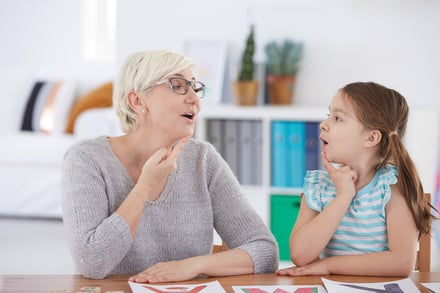 But while my symptoms improved, Shaylin’s never did. In a way, I owe my sister my life; Mom recognized my symptoms right away after seeing Shaylin’s. Who knows how my growth would have differed without having Shaylin in my life? I excelled, and there is a twinge of guilt to this day, due to the life Shaylin unintentionally provided for me, a life she will never have.
But while my symptoms improved, Shaylin’s never did. In a way, I owe my sister my life; Mom recognized my symptoms right away after seeing Shaylin’s. Who knows how my growth would have differed without having Shaylin in my life? I excelled, and there is a twinge of guilt to this day, due to the life Shaylin unintentionally provided for me, a life she will never have.
So, you would think that my realizations, including that of my being autistic, would make me an immediately understanding person by now, right? Not necessarily. I still mess up. I still have my foot in my mouth all the time. I’m still reclusive. Additionally, I’m a little sister, not a mother, not even a big sister. It took years of growing up for me to even realize I needed to help out in the first place, not due to my being spoiled, but due to my lack of understanding of the situation as a child who didn’t even like to socialize. And even now, I am not the best with small talk, or the best with keeping Shaylin happy and healthy.
But as I have gained a bit more empathy and maturity over the years, perhaps there is some hope. Every once in a while, when I am very angry, and I lack the sudden urge to scream, I feel another, more unusual urge: the urge to bite something. My mouth itches with the need to sink my teeth into something tangible. My Temporomandibular joint dysfunction makes this even stranger, but my instincts shove the discomfort aside until my teeth are piercing a blanket and I am seeing stars.
What is even more strange is that my older sister Shaylin has been biting blankets for years.
Perhaps I acquired this peculiar urge after observing such behaviors for years. However, both my sister and I have had rather bizarre habits ever since we were little. While Shaylin prefers another’s palm over her lips, I used to smell my hands. While Shaylin used to eat cheese in a certain way, I used to eat Pop-Tarts in another way. While Shaylin watches the same Disney movies all the time, I obsess over the same songs and Broadway musicals.
Now, one could say that bizarre habits are a minor concern for families of autistic children, including mine. The real challenge, I have come to discover, as a member of the autistic community, is finding your voice, and either speaking for oneself or being blessed with a loving, empathetic person who can truly speak for you. Sometimes we are blessed with self-awareness. Others are not. Sometimes it takes years to even reach a milestone, years for even family members to comprehend what an autistic person is experiencing, how they experience these things, and simply why. And very few will be able to communicate their experiences with non-autistic individuals.
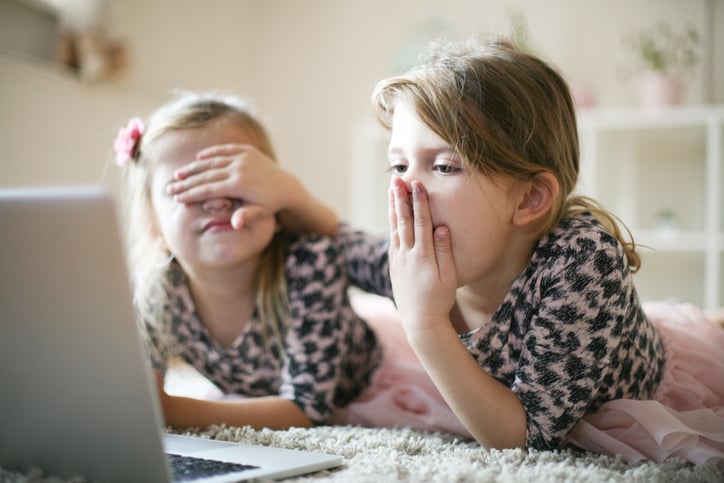
Societal Challenges
Another challenge is more societal than individual; society has to listen more. We have begun to listen, but there are still many more obstacles. For one thing, autistic girls and women generally have different symptoms than autistic boys and men, unrecognized, and undiagnosed. Society’s portrayal of autism is still skewed and in need of constant edits. There is always room for editing. Not every Aspie is good at certain subjects in school over others. Not every autistic person has trouble recognizing emotion. We have to pay more attention. It was not too long ago that we did not; I had teachers who convinced me through their actions that they were autistic. Listen up: no one knows everything about all this complexity.
As of right now, Shaylin is currently taken care of in a home for severely autistic people in Knoxville. We visit her occasionally, but we will always have to keep an eye on her, especially since she has aggressive tendencies and sleeping problems. Hopefully, I can help my family in some way to bridge the gap, a little. I am not intelligent nor empathetic enough to be my sister’s mouthpiece, but my blessed and caring mom and sister Marissa are. All four of us, my father, mother, Marissa, and I are trying hard to contribute to Shaylin, and be the most caring and understanding versions of ourselves for her from what we have learned. We are better people because of these efforts, because of Shaylin.
The bubble will never burst. But from someone who has been in the bubble, I hope I can be there for Shaylin with my fraction of understanding about her headspace. Fifteen years ago, I couldn’t eat Pop-Tarts correctly. Let’s see what I can do for her fifteen years later and what I can learn from her fifteen years later.
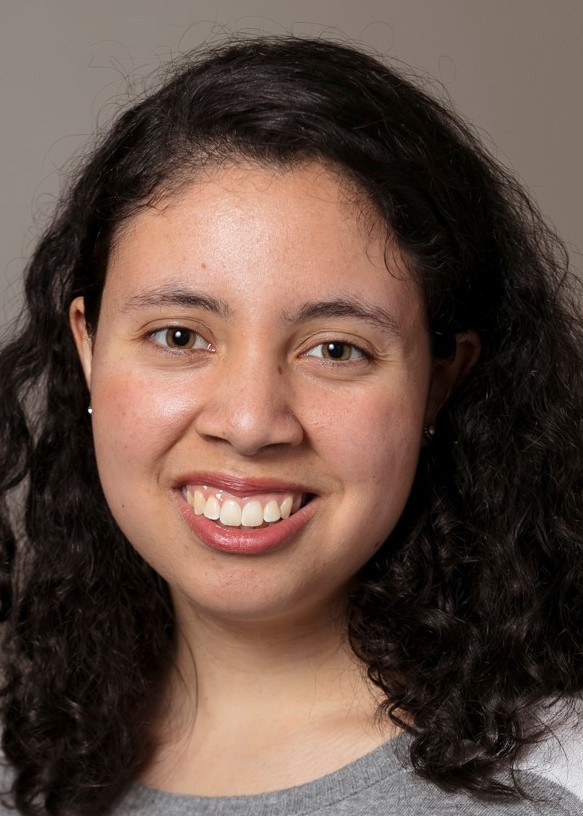
Olivia Diaz
Olivia Diaz is a recent graduate with a Bachelor of Science degree in Environmental Engineering and a minor degree in Mathematics. She was diagnosed with Asperger’s, and she currently lives near her severely autistic sister in Tennessee. She is motivated to help contribute to society’s understanding and perception of Autism Spectrum Disorder.


